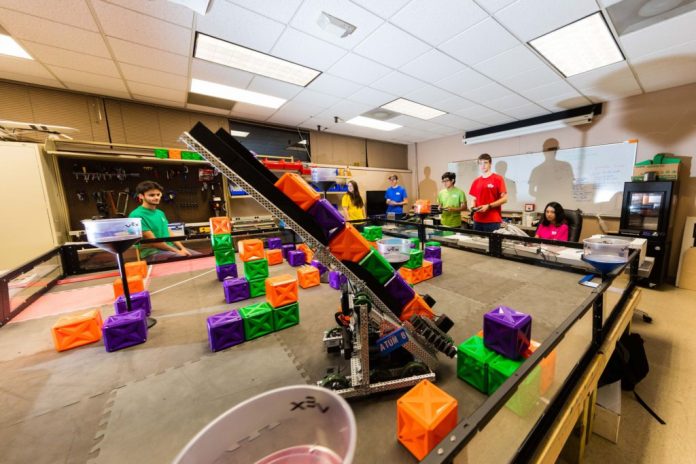Accessibility matters to 21st century aspirants seeking technical competencies — this is a fact Arkansas Tech University understands best. Hence, its priority is to ensure its most technical qualifications can be earned 100% online. Its students need not blow their budgets on travel expenses, visas or housing in a new country.
All classes can be attended in a traditional asynchronous format. Those with high-speed internet will be able to participate in live classes virtually, thanks to the “Hyflex” format, which came to be as more classes were filled with enough cameras and microphones to facilitate a high-quality live stream.
While Arkansas Tech continues to broaden its lineup of online academic offerings, three are already on offer due to the relevance they have in our increasingly digitised world: Master of Science (MS) in Information Technology (IT), Master of Engineering in Mechanical Engineering, and Master of Engineering in Electrical Engineering.
The MSIT was designed for learners with limited knowledge in IT but who are keen on achieving a successful career in the field. To prepare them for such outcomes, the programme teaches them to administer and support the computing infrastructure of an organisation.
The robust curriculum includes lessons in networking, web development and administration, database development and administration, and well as systems administration. Many graduates of this course are currently using their new skills at Walmart corporate offices, Microsoft, Acxiom, ArcBest, JB Hunt, and the University of Wisconsin.
Personalised attention is an Arkansas Tech hallmark. Source: Arkansas Tech University
With a Master of Engineering in Mechanical Engineering, students explore advanced engineering topics, the fundamentals of writing research reports, effective project planning, and teamwork. It includes required courses in math, management and communications in addition to the engineering courses. The combination has opened doors for graduates to work for Eni Petroleum, Nike, Sanmina-Sci Corporation, and the Shalfa Group.
Interdisciplinary excellence makes such success possible. The Mechanical Engineering programme is delivered in close cooperation with Arkansas Tech’s Master of Engineering in Electrical Engineering, meaning students, from either programme, could customise their degree plan with courses from both curricula.
The Electrical Engineering programme is just as dynamic. It helps students in laying a solid foundation in both the theories and applications of the field. In the process, they become more forward-thinking and innovative.
That’s exactly what Obande Micheal Ikwuyum left Nigeria to gain. “I loved technology as a whole, and I soon realised Electrical Engineering was at the heart of it all,” he says. Hence, his decision to pursue the area of study — at both undergraduate and postgraduate levels — at Arkansas Tech.
His favourite classes were the ones thought-provoking enough to keep him up at night. “The class in Electromagnetics is definitely ingrained in my brain somewhere,” he enthuses. “I also enjoyed software-based classes in hardware programming in digital design classes, PLCs, classes with Matlab as well as computer programming classes.”
“Classes were even more memorable when we were paired in groups. In the process, we built enduring relationships while exchanging ideas and concepts on how to understand the subject matter. This was also the best part of learning in small classes. We truly became a community of like-minded students, helping each other succeed.”
Many engineering students at Arkansas Tech make their mark early through industry placements. Source: Arkansas Tech University
The personalised attention he speaks of is an Arkansas Tech hallmark, as is the encouragement of experiential learning. In fact, with the MS-IT programme, a culminating student project or internship is a requirement. The Mechanical Engineering and Electrical Engineering programmes do not consider adding value beyond classrooms to be a course requirement, however, many find industry placements to be too good an opportunity to pass up.
Ikwuyum was “blessed” with the opportunity to intern at Texas Instruments as a failure analysis engineer. “The best way to describe what it entails is to think of a surgeon doing his/her job, but tiny chips take the place of humans,” he explains. “I provided support by analysing faulty semiconductor devices to understand why they fail and how they can be improved.”
The esteemed organisation was so impressed with what Ikwuyum knew and could do that they invited him to return as a full-time employee once he graduated. Of course, he did just that. Today, he’s proud to serve as Texas Instruments quality engineer in Silicon Valley, California.
To learn more about how Arkansas Tech fosters an environment where 21st century students succeed, click here.
Follow Arkansas Tech University on Facebook, Instagram, Twitter, and YouTube.






